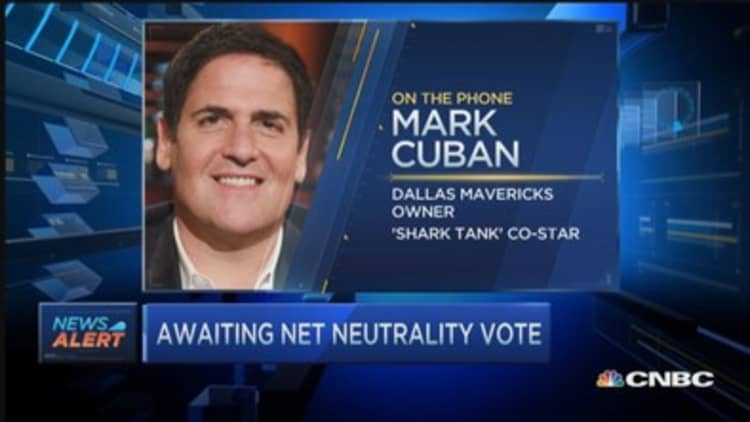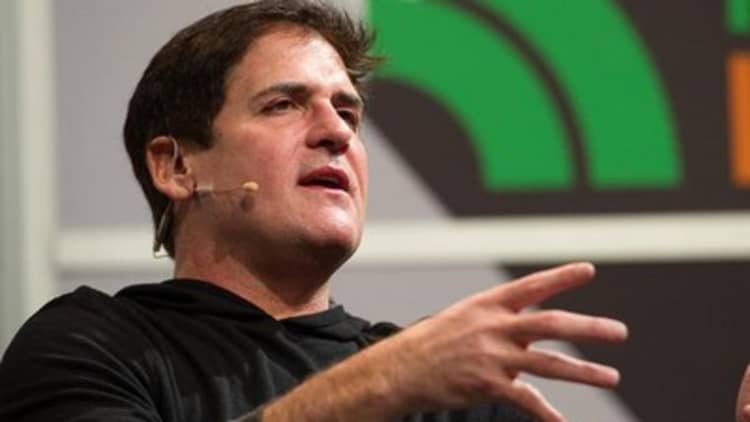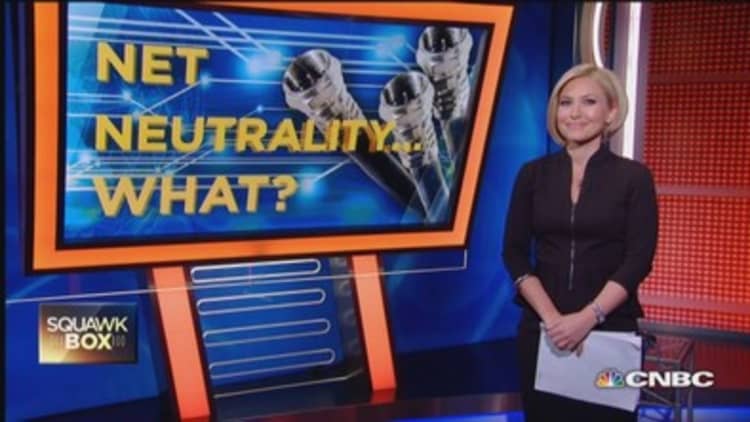


Enshrining net neutrality into Federal Communications Communications rules will subject the Internet to the whims of politicians and create uncertainty, Mark Cuban told CNBC on Thursday before the agency approved the regulations.
Cuban said FCC Chairman Tom Wheeler has changed his position on net neutrality from his original stance in 2010, when the agency used what was widely seen as a lighter touch to regulating Internet traffic. The courts struck down those rules, saying the FCC lacked authority to enforce them, after Verizon issued a legal challenge.
Read MoreFCC votes toclassify Internet as a public utility
Cuban, the closely watched investor and owner of the Dallas Mavericks, suggested that Wheeler's current position has been influenced by President Barack Obama.
"Chairman Wheeler had one position that is different than now," Cuban said in a "Squawk Alley" interview. "Then the Verizon decision comes along. Then we get the president of the United States giving his position. Then Chairman Wheeler changes his. Now we have the vote that we're having."
"Does anyone really think that it's going to be different for future chairmen, with future presidents, with a future makeup of the FCC? There's going to be a whac-a-mole environment going forward on our Internet," he said.
As expected, the FCC voted Thursday in favor of enforcing net neutrality by classifying Internet service providers as utilities under Title II of the 1934 Communications Act. Net neutrality is the policy of treating all Internet traffic equally, rather than blocking or imposing "tolls" on access to higher grades of service.
The new rules give the agency the ability to regulate the providers like telephone line operators. Among other things, the FCC will d be able to prevent providers from blocking legal websites, slowing down traffic to specific sites or allowing faster access to other services, such as Netflix or Amazon Instant Video.
Read MoreObama flip-flops on FCC transparency: Chaffetz
The rules would mean that television as we know it is over, Cuban said. He asserted that the transmission of content over television is essentially the same as the transmission of content over the Internet. By that logic, he speculated that the FCC could determine television delivered by cable should be part of the open Internet.
That would mean the same standards would apply to television content providers, including the ban on pay for prioritizing service, he said, so shopping channels such as QVC would run around those rules because they pay cable providers to carry their content.
"Bits are bits and if all bits are to be treated equally you can't give priority to delivery of a television stream in a managed service," he said.
With the regulations, the courts will rule the Internet for years as stakeholders sue to overturn the rules, Cuban said. He foresees gridlock in the industry and a halt in innovation as lawsuits proliferate over what type of content delivery should be considered paid prioritization.
"If you love the Internet the way you know it today, this is what you're going to have for a long time," he said. "If you're like me and you think the best is yet to come, you don't want the FCC involved because of all the uncertainty."
Read MoreFather of net neutrality: Rules won't kill spending


